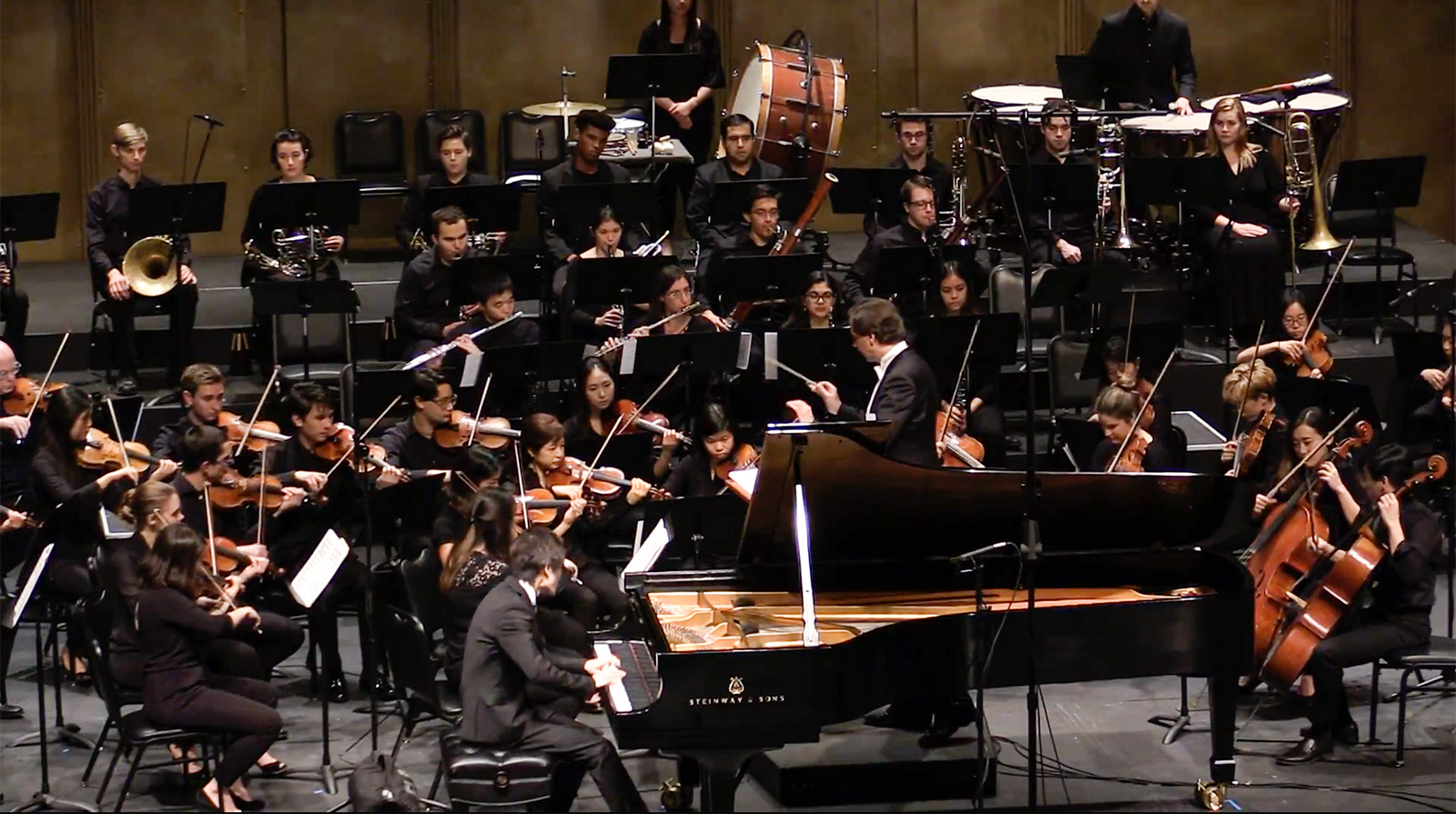Student connects to others with classical music

Second-year piano performance student Shota Homma played Robert Schumann’s Piano Sonata No. 2 in G minor in front of a Carnegie Hall audience. He started taking lessons at the age of 4 and after moving to the United States from Japan and became interested in making classical music more available. (Courtesy of Shota Homma)
By Faatimah Mahadi
April 3, 2018 11:20 p.m.
Shota Homma struggled with the fast and arpeggiated movements of Robert Schumann’s Piano Sonata No. 2 in G minor.
But on Sunday, the second-year music student played the piece in front of thousands of audience members at Carnegie Hall.
Homma won second place at the American Protégé International Piano and Strings Competition in January, giving him the chance to play the piece at Carnegie Hall. However, the piano has given him more than awards and accolades – Homma said playing piano has given him solace in difficult times throughout his life, most notably during his journey to the United States.
Homma began playing the piano when he was 4 years old after finding an electric piano in his childhood home in Tokyo. Homma said he was amazed that an object like the piano could create elegant and delicate music. He added he wanted to be able to make music like that, and asked his parents to sign him up for a few lessons, not realizing the impact it would have.
“Taking piano lessons is hard because it’s expensive and it isn’t an easy instrument to learn, so it was a pretty serious commitment to start so early,” Homma said.
Homma maintained his commitment to the piano, continuing to play as he moved from Japan to the United States at the age of 11. Homma said he went from living in a country where he could interact freely with other people to one where he was limited by a new language and culture. The piano became his mode of communication, a type of language that transcended cultural barriers, he said.
“I couldn’t speak English properly, and that’s when I started studying the piano seriously because that was the only way I could attract people,” Homma said. “I could communicate with people through music.”
Homma said music became a catalyst for conversation, as people would approach him about a piece he was playing or share their own experiences with the piano. He decided to further his training because his music was the one thing that both people from the United States and Japan appreciated about him, he said.
Homma said he wants his music to help people who face difficulties, whether physical or emotional, much like how the piano helped him during his transition to a new country. Although he mainly focused on winning competitions in high school, he said a performance at a charity event changed his perception of the purpose of music.
After his performance, an audience member approached him in tears and told him how inspiring his music was. Homma said the interaction with a stranger, whose only connection with him was music, showed him the power it has in uniting people.
The classical music discipline is small and as a result, more instrumentalists play for select audiences at competitions. Homma said he wants to use his music to unite a more general audience and make classical performance more publicly available.
“I decided that I wanted to improve with the piano, not for myself, but as a way to contribute to people,” Homma said.
On Feb. 8, Homma performed with the UCLA Philharmonia at Royce Hall in the Herb Alpert School of Music’s 14th Annual All-Star Concert. Homma’s professor, Inna Faliks, the head of piano at the School of Music, said she approached him with the opportunity because she knew he would dedicate himself to it.
“He was not really sure what to do with this (performance), but I was so convinced that it was his piece,” Faliks said.
Faliks said the performance in February pushed Homma to broaden his musical abilities away from technical perfection and toward the energy that can come from playing with others. Homma said the performance was different from the solo piano performances he was used to giving because it depended on different instrumentalists listening to each other during the piece.
Angela Lin, a fourth-year music student and friend of Homma, said he is usually very introverted, but the piano gives him the chance to express himself in a way he couldn’t otherwise. Lin said when Homma felt inundated with studying for a test or practicing a piece, he would turn to his piano and play, sometimes meaningless chords and other times old jazz numbers.
Homma said the piano has been the one constant during the changes and transformations he has experienced, so he hopes he can share the comfort of piano playing with others.
“The piano is my best friend, and I think the ability to play and share it with others is most rewarding,” he said.


